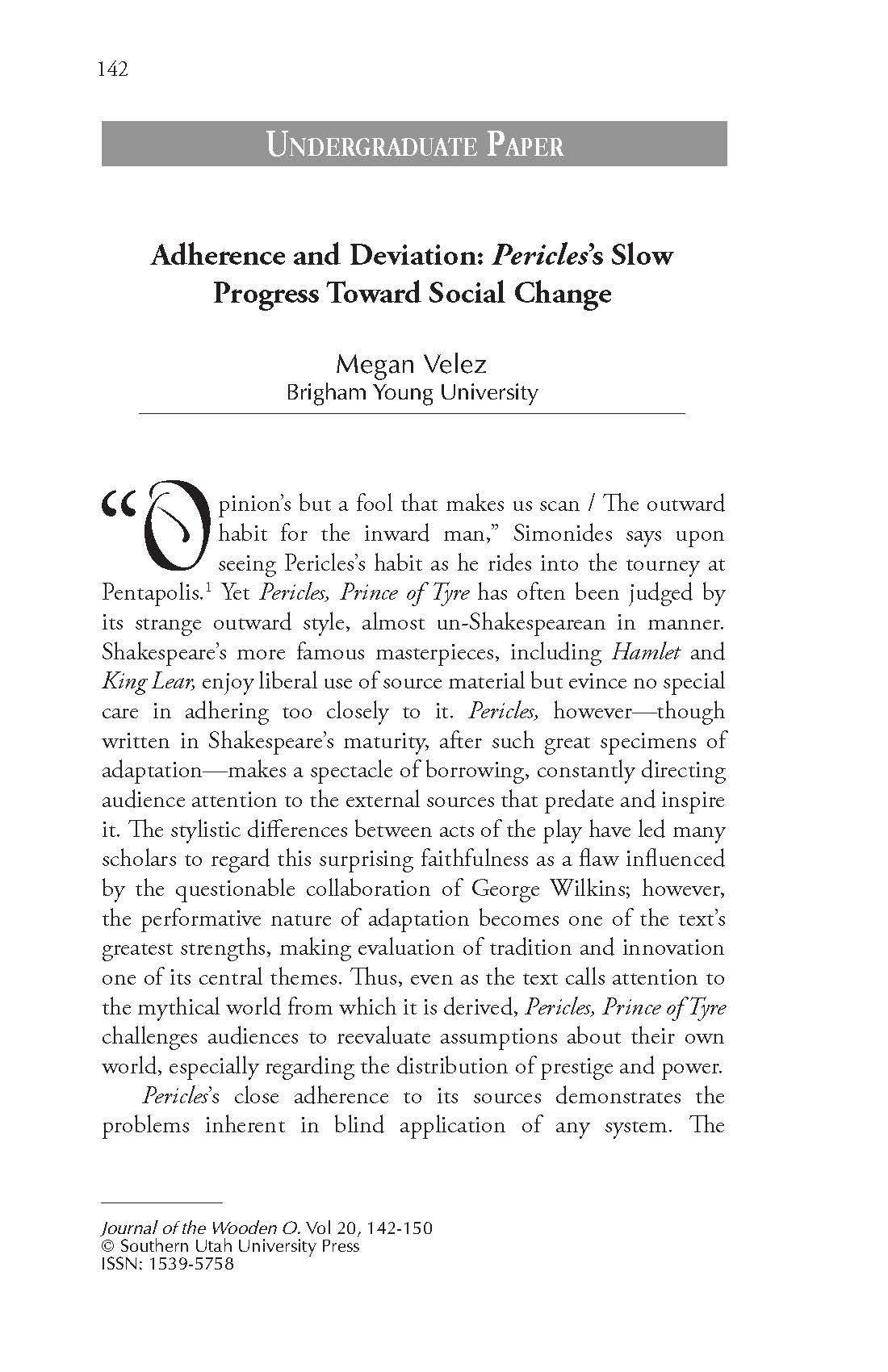The Effect of Gaps on Memory in Shakespeare's Winter's Tale and Related Works
Main Article Content
Abstract
During a 1995 study on memory, Henry Roediger and Kathleen McDermott tested the brain’s tendency to create memories that it did not experience. To accurately recall a series of closely associated words on a list, each research subject had to bridge the gap between perception and memory in order to complete the study. Though this study focused on the association of context and words in series of lists, Roediger and McDermott discovered “a powerful illusion of memory: People remember events that never happened.”1 The memory of each participant became a condition of perception over time. In a similar sense, in his “Sonnet 5” and The Winter’s Tale, Shakespeare introduces chronological gaps that permit the distillation of time’s destructive and constructive effects on memory.
